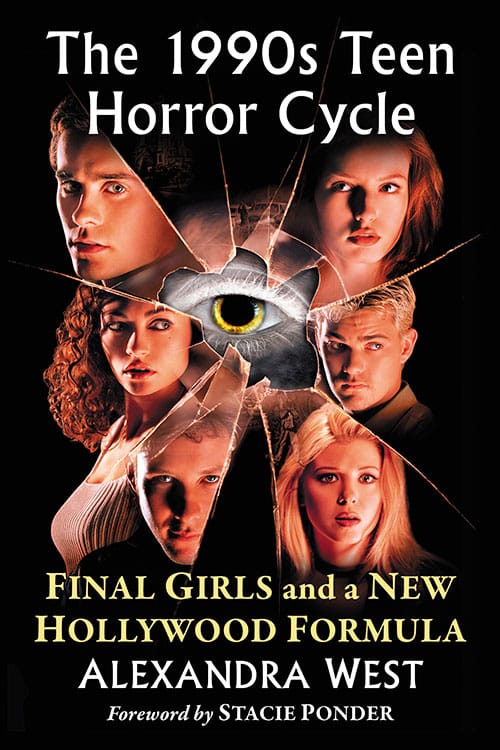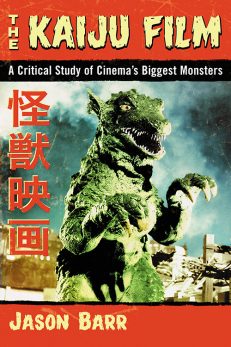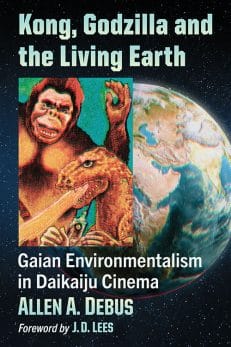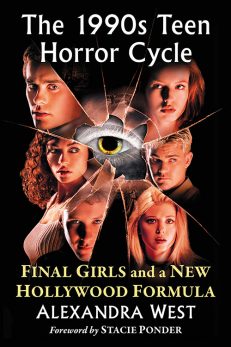The 1990s Teen Horror Cycle
Final Girls and a New Hollywood Formula
$29.95
In stock
About the Book
Many critics and fans refer to the 1990s as the decade that horror forgot, with few notable entries in the genre. Yet horror went mainstream in the ’90s by speaking to the anxieties of American youth during one of the country’s most prosperous eras. No longer were films made on low budgets and dependent on devotees for success. Horror found its way onto magazine covers, fashion ads and CD soundtrack covers. “Girl power” feminism and a growing distaste for consumerism defined an audience that both embraced and rejected the commercial appeal of these films. This in-depth study examines the youth subculture and politics of the era, focusing on such films as Buffy the Vampire Slayer (1992), Scream (1996), I Know What You Did Last Summer (1997), Idle Hands (1999) and Cherry Falls (2000).
Instructors considering this book for use in a course may request an examination copy here.
About the Author(s)
Bibliographic Details
Alexandra West
Foreword by Stacie Ponder
Format: softcover (6 x 9)
Pages: 195
Bibliographic Info: notes, bibliography, index
Copyright Date: 2018
pISBN: 978-1-4766-7064-5
eISBN: 978-1-4766-3128-8
Imprint: McFarland
Table of Contents
Acknowledgments vii
Foreword by Stacie Ponder 1
Introduction 3
1. They Never Had It So Good: America in the 1990s 13
2. Imitate Us: America’s Youth Culture 25
3. Co-Deads: Buffy the Vampire Slayer (1992) and My Boyfriend’s Back (1993) 34
4. First Blood: The Crush (1993) and Fear (1996) 43
5. Generation Hex: The Craft (1996) 55
6. Bowling for Woodsboro: Scream (1996), Scream 2 (1997) and Scream 3 (2000) 63
7. Hit and Run: I Know What You Did Last Summer (1997) and I Still Know What You Did Last Summer (1998) 82
8. Circulate Widely: Urban Legend (1998) and Urban Legends: Final Cut (1998) 92
9. Cutting Class: Disturbing Behavior (1998), The Faculty (1998) and Teaching Mrs. Tingle (1999) 103
10. Re-Generation: Halloween H20 (1998) and The Rage: Carrie 2 (1999) 121
11. Lust for Life: Wicked (1998) and Idle Hands (1999) 131
12. The Millennium Approaches: Cherry Falls (2000), Final Destination (2000) and Scary Movie (2000) 140
13. It’s All Coming Back to Me Now: Urban Legends: Bloody Mary (2005), I’ll Always Know What You Did Last Summer (2006) and Scream 4 (2011) 156
Conclusion 169
Chapter Notes 173
Bibliography 181
Index 183
Book Reviews & Awards
• “West may not have intended to write a feminist book about horror films, but in many ways that’s exactly what she did…. West is a self-professed devotee of the genre…well-researched… An interesting read for horror fans and cinephiles alike.”—Booklist
• “West’s invaluable insight is educational but rarely dry. Even if you’re familiar with every movie profiled in the book, you’re likely to look at them in a new light – in addition to learning a few interesting facts”—Broke Horror Fan
• “[West] makes a very convincing argument for the re-evaluation of these [films], particularly through a fiminist lens. West shows herself to be an incredibly talented and gifted writer, able to deftly analyze films that were otherwise disrespected and actually make the case stick…. a very, very good, very effective book that should be placed in the pantheon of must own books about horror movies”—Daily Grindhouse
• “An interesting chronicle of one of the most overlooked decades of horror cinema…. The book reads like a trip down memory lane, and West never condescends or trash-talks the quality of the lesser entries of the decade…. Fans of this unique period in horror films will surely find a lot to reminisce over and think about from a new perspective in this text”—Horror News Network
• “Drops many insightful hints to the movies…a wonderful book”—The Horror Times
• “A fun and readily accessible look at the philosophical themes (and commercial considerations) that tie these movies together… West’s writing is lucid and appealing… Hews to a conversational style that brings these films and their intellectual considerations to life with flair, on a subgenre all too often ignored in horror… West is a solid writer with fascinating things to say.”—The AV Club





